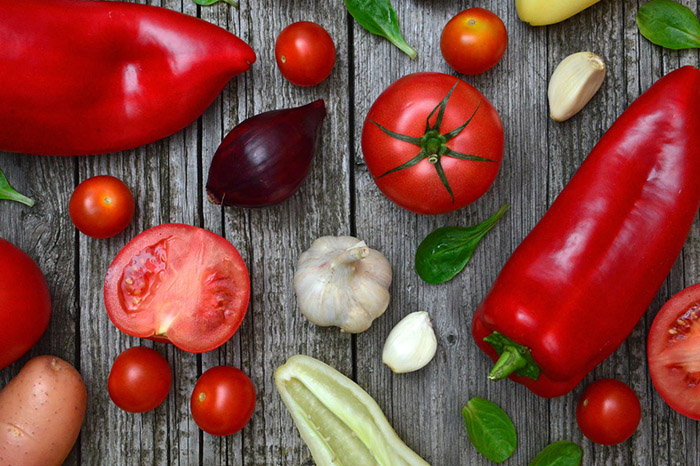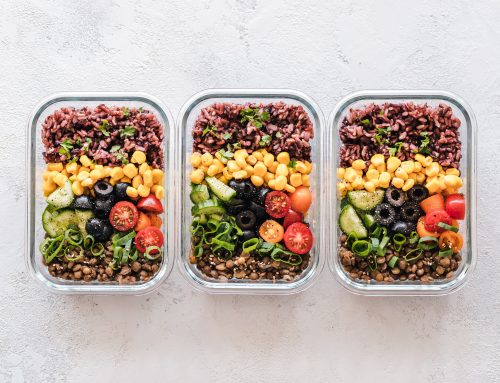The Mediterranean diet is not just one diet but a collection of traditional eating habits of the people who live in the countries bordering the Mediterranean Sea. Research has shown that these particular cultures have longer life expectancy and a reduced risk of a number of chronic health conditions such as:
- Coronary heart disease
- Type 2 diabetes
- Cancer, particularly colorectal and breast cancers
- Alzheimer’s
- Parkinson’s disease
- Dementia
- Weight management
The eating patterns of Mediterranean countries have distinct common features that are believed to be associated with positive health outcomes and longevity. The key ingredient is the high consumption of olive oil. Their other common eating patterns are focused around consuming a wide variety of whole and nourishing foods including:
- An abundance of plant foods. They have a high intake of vegetables, particularly leafy greens and tomatoes as well as fresh fruit
- Only small amounts of red meat
- A high amount of fat mainly from monounsaturated sources particularly olive oil, fish, nuts and seeds
- Wholegrain cereals including sourdough bread and pasta
- Yoghurt consumed regularly and cheese in moderation (particularly goats cheese)
- Moderate amounts of wine (drunk with meals)
- Legumes, onions, garlic, broccoli and other cruciferous vegetables, citrus fruits, berries, olives, herbs and spices
The Mediterranean diet is quite high in fat, however this fat is from monounsaturated oils such as olive oil and polyunsaturated sources rich in omega-3 from fish, nuts and seeds with less saturated fats from animal sources including dairy and meat. Studies have indicated that the cultures whose diets are higher in animal fats have the highest incidence of heart disease death.
How do I follow a Mediterranean Diet?
To achieve a Mediterranean diet, you may need to increase your intake of fresh fruits, vegetables, wholegrains, nuts and fish and decrease your intake of red meat and dairy. There is no specific fat restriction, as long as fat is mostly derived from fatty fish and plant sources particularly olive oil or nuts.
10 Tips to help you implement a more Mediterranean style of eating into your life:
- Use olive oil as the main added fat – At least 60mls/day recommended (3+ Tbsp/day). Use olive oil in cooking and as a dressing with balsamic vinegar or lemon juice. Drizzle on wholegrain bread instead of butter.
Olive Oil Dressing Recipe: In a small jar mix about 2 Tbsp olive oil (Extra Virgin best) + 2 Tbsp balsamic vinegar OR white wine vinegar OR lemon juice + tsp mustard +/- tsp honey. Shake vigorously with lid on.
- Eat vegetables with every meal. Include each day:
- 100g leafy greens (or 1 cup if cooked) e.g. lettuce, rocket, baby spinach, kale, bok choy, cabbage
- 100g tomatoes (1 whole medium)
- 200g other vegetables (1½ cups)
- Aromatic herbs in your cooking e.g. fresh or dried basil, parsley, oregano, coriander, thyme, rosemary etc.
- Include at least 2 legume meals per week (2 x 250g (1cup) serves/week) e.g. chickpeas, kidney beans, 4 bean mix, lentils. Add to soups, curry, stews, salads.
- Eat at least 2 servings of fish (150-200g serves) per week and include oily fish such as sardines and salmon. Including fresh, frozen and tinned fish.
- Eat smaller portions of meat (beef, lamb, pork and chicken) and less often (1-2 times per week). Reduce amount of meat in a meal by increasing vegetables and legumes.
- Eat fresh fruit every day and dried fruit and nuts as snacks or for dessert.
- Eat yoghurt every day (especially natural yoghurt) and cheese in moderation.
- Include moderate amounts of wholegrain breads and cereals with meals.
- If you drink wine consume in moderation (1-2 glasses per day) always with meals and don’t get drunk.
- Have sweets or sweet drinks for special occasions only.
This particular way of eating may provide both an enjoyable and sustainable diet satisfying hunger and cravings for variety. It is based around foods that are accessible and affordable with simple preparation methods and encompasses the pleasure of eating for good health as well as enjoyment.
Stay tuned for Mediterranean style Recipes to come! For more information on our to incorporate a Mediterranean style eating pattern into your daily life, contact one of our dietitians.






